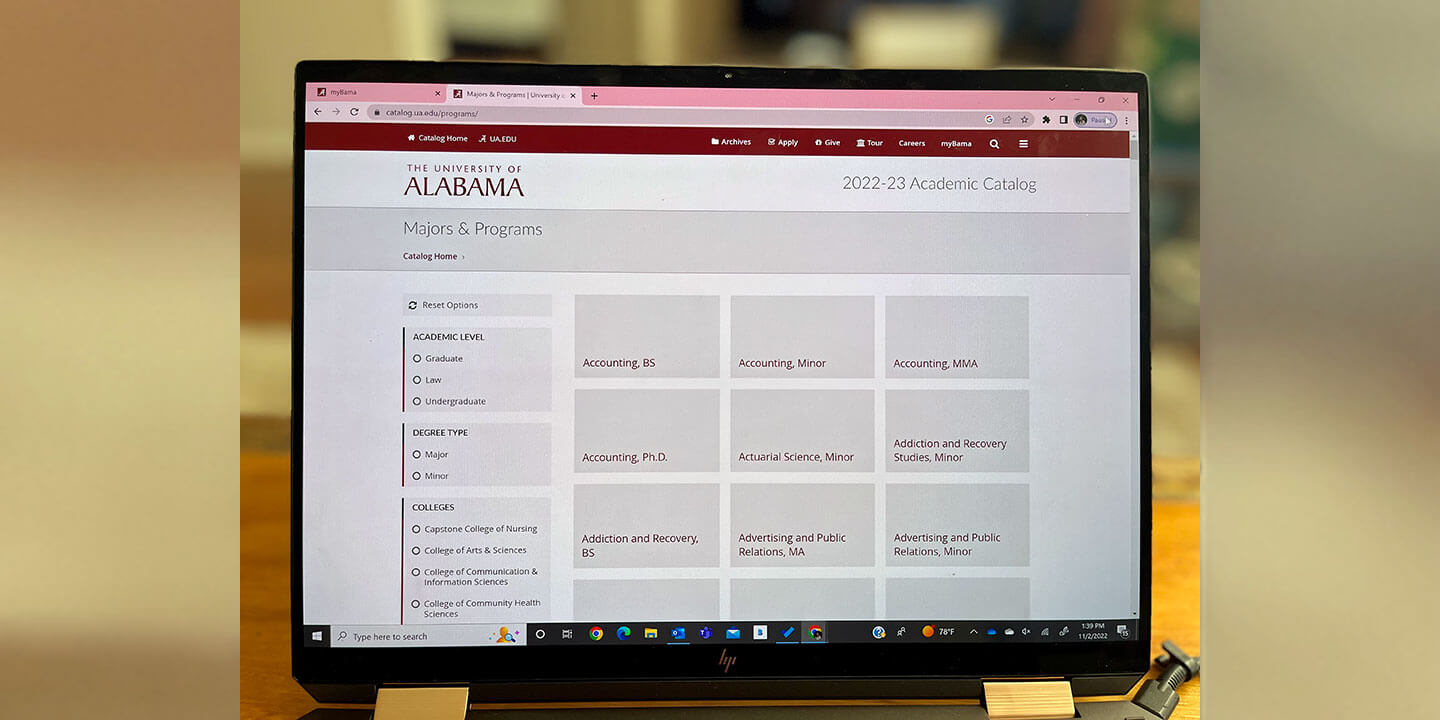
Things to Consider Before Changing your Major

College can be way different than we ever imagined. You come in with a plan thinking you know what you want to do, then halfway through the semester you start second guessing yourself. Is it just nerves, hard classes, or do you really want to change your major? Have you found your passion? Even if all you know is that you hate your current major, here are a few tips for helping you find a new major, figure out if you actually want to change your major, or just want to explore different classes at your university.
Do Some Research
Check out the university catalog and see what other majors your school has to offer. Maybe there’s a program that sounds interesting that you want to try. Talk to some of your peers and faculty that are part of that program. If it’s not too late, maybe sign up for one class to try out the program before you switch degrees. Taking one class before changing your major can save you a lot of hassle if you decide you don’t enjoy that program. It could also help you realize that your current program is the right program for you. Or maybe your current school doesn’t have the program that you think is right for you. Are you willing to transfer schools?
Take A Career Quiz
It might sound cliché but taking a skills test can help point you in a new direction when considering careers. Additionally, look at jobs you might want in the future. Your major should help you gain knowledge in experience in whatever field you want to be in. Sometimes it’s easier to start by identifying the job you want and then working backwards to achieve it. Talk to people that currently have that job. Connect with recruiters. Ask people what qualities they look for when hiring and what majors they look for. Depending on the job, your major may matter less than the skills you acquire.
Take A Look at Your Finances
Can you afford to take the extra time it may take to graduate? If not, explore some additional scholarships or financial aid packages or consider finishing your current degree and coming back to school later when you’re financially able to. Some companies pay their employees to obtain certain degrees, so maybe that’s an option for you. Consider multiple paths to achieving your goals. Who knows, you may not even need to go back to school. You may need to learn a few skills on your own and then market yourself appropriately. Everyone’s path looks different, so consider what you want yours to look like.
Meet With Your Advisor
Talk to your current advisor and your potential advisor. Ask questions about program length, classes, grade requirements, scholarships, job opportunities, and anything else before making the switch. Advisors are incredibly knowledgeable and are there to help. They can also help you decide if changing your major is right for you. It’s a hard choice and can be intimidating, but there’s no need to be afraid to make that change.
Whether or not you decide to change majors, make a point to meet with your campus career center. They will help guide you towards jobs that fit your goals. They are there to help you market yourself so that you can land your dream job. At the end of the day, it never hurts to diversify your learning and have fun while doing so.
Do you have a compelling story or student success tips you’d like to see published on the Pearson Students blog? If you are a college student and interested in writing for us – click here to pitch your idea and get started!
About the author

Rachel Calcote
Rachel Calcote is a senior at The University of Alabama. She is majoring in Public Health with a minor in General Business and a concentration in Health Professions. In her free time she enjoys reading, participating in triathlons, and volunteering at her local hospital. She also enjoys being a Pearson Campus Ambassador on her campus.


